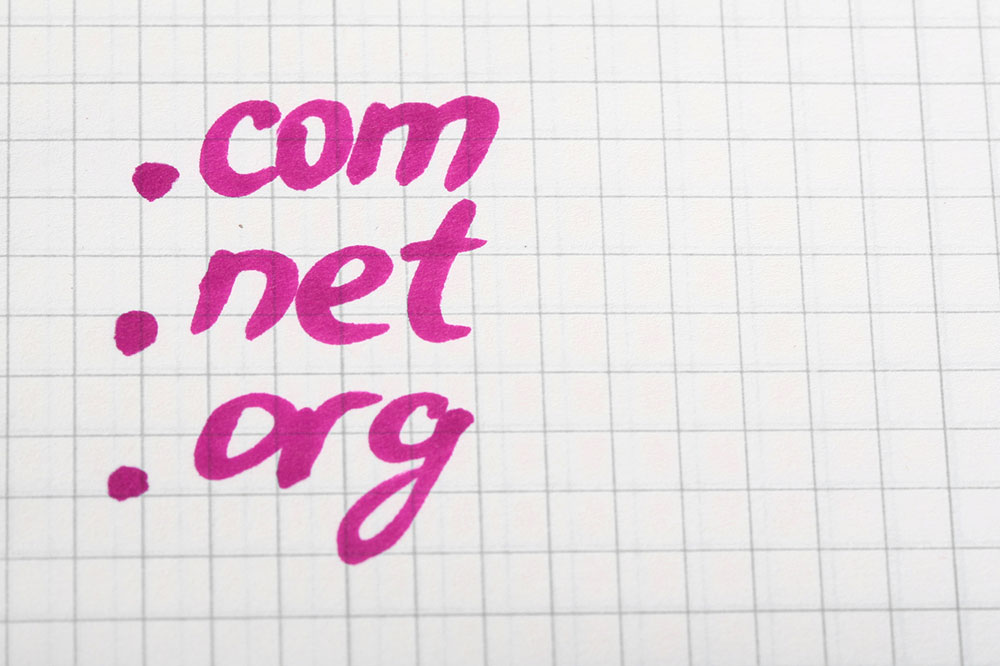Essential Guide to Avoid Common Domain Name Mistakes for Your Business
Learn how to avoid the top four common domain name mistakes that can harm your brand's online presence. This comprehensive guide covers avoiding brand confusion, selecting short and memorable names, ensuring relevance, and choosing spellings wisely. Perfect for businesses aiming to build a strong and credible online identity, this article offers practical tips to help you make informed decisions when registering your domain.

Mastering the Art of Choosing the Perfect Domain Name: Four Common Pitfalls to Avoid
In today's digital age, an effective online presence is vital for any business aiming to succeed and grow. One of the foundational steps in establishing your digital footprint is selecting the right domain name. Your domain not only influences your brand’s visibility but also affects user experience, SEO rankings, and legal safety. With millions of websites competing for attention, choosing an optimal domain name requires careful thought and strategic planning. Many businesses, especially startups and small enterprises, tend to rush this process, which can lead to costly mistakes that impact their branding and online effectiveness for years to come.
To help you navigate this critical process, we've compiled a comprehensive guide highlighting four common domain name pitfalls you must steer clear of. Understanding these errors and knowing how to avoid them will enable you to pick a domain that aligns with your brand, enhances credibility, and fosters growth.
Opting for a name too similar to existing brands or competitors
One of the most frequent errors in domain selection is choosing a name that closely resembles an established brand or business. While this might seem like an easy way to ride on the coattails of existing popularity or traffic, it often backfires. Domains that are similar in spelling or sound to well-known brands can generate confused traffic, but it also opens the door to legal challenges such as trademark infringement lawsuits. Furthermore, such similarities can diminish your brand's originality and uniqueness, making your business appear unoriginal or even deceptive. For instance, a domain like "FacebookLogin.com" or "AppleStore.co" can cause consumer confusion and liability issues.
Additionally, adhering to legal standards is crucial. Infringing on trademarks can lead to costly litigation, reputation damage, and possible domain seizures. Therefore, conduct thorough trademark checks and competitor analysis before finalizing your choice. Strive to select a unique name that stands out distinctly within your industry to establish a strong, recognizable brand identity.
Choosing a domain that is excessively long or complicated
Another common mistake is selecting a long, unwieldy domain name that is difficult to remember and type. In an era where most browsing occurs on mobile devices, shorter and straightforward URLs are paramount. A complex name with multiple words, hyphens, or unusual characters not only hampers user experience but also discourages repeat visits. For example, a domain like "BestAffordableElectronicsStoreOnline.com" may sound descriptive but is neither easy to remember nor easy to share.
Experts recommend aiming for domain names that are no longer than 16 characters. Short, punchy domains tend to be more memorable, enhance brand recall, and improve SEO performance. They are also easier to promote on social media, print advertising, and word-of-mouth campaigns. When in doubt, choose simplicity and clarity to make your domain a powerful asset for your digital branding efforts.
Selecting a domain that does not accurately reflect your business or niche
Your domain should serve as a reflection of your brand's identity, industry, or core offerings. Picking a domain that is unrelated or vague can cause customer confusion, dilute your branding message, and hinder online discoverability. For instance, if you operate a boutique hotel, using a domain like "UrbanCafe.com" might mislead visitors into expecting a coffee shop rather than lodging services.
Before finalizing, verify domain availability with your registrar and ensure it aligns with your brand's mission and services. A relevant domain helps customers instantly understand what you offer, fosters trust, and enhances SEO by including keywords related to your niche. If your business evolves, consider securing related domains or subdomains to guide visitors effectively across your online assets.
Using unusual spellings or creative misspellings in your domain
Unique spellings can be a strategic choice to stand out in a crowded marketplace—companies like "Flickr" or "Tumblr" have successfully employed creative spelling to create memorable brands. However, this approach must be used cautiously. If the spelling is too strange or unpredictable, it can confuse visitors, make your domain difficult to remember, and reduce word-of-mouth sharing. For example, a domain like "KoolKreations.com" might look distinctive, but if not widely promoted, it could lead to misspellings and lost traffic.
When opting for unconventional spellings, it’s crucial to secure all relevant domain variants to prevent brand dilution or cybersquatting. Consistency and simplicity should remain priority considerations. The goal is to create a domain that is both unique and easy to recall, helping your brand establish a strong online presence without alienating your audience.
In conclusion, selecting the right domain name is a strategic process that requires careful analysis, creativity, and legal awareness. Avoiding common pitfalls such as similarity to existing brands, excessive length, poor relevance, and overly complex spellings ensures your domain can serve as a powerful foundation for your online branding efforts. Remember, your domain is often the first impression customers have of your business—make it count by choosing wisely.





